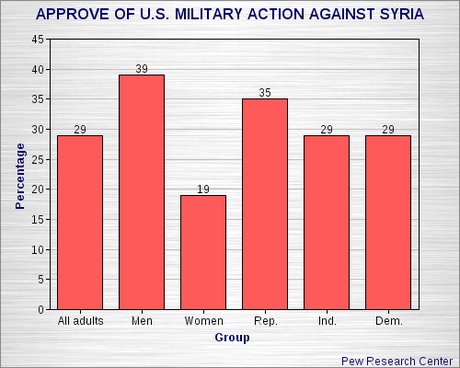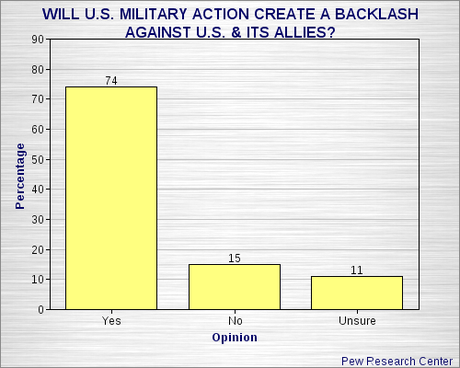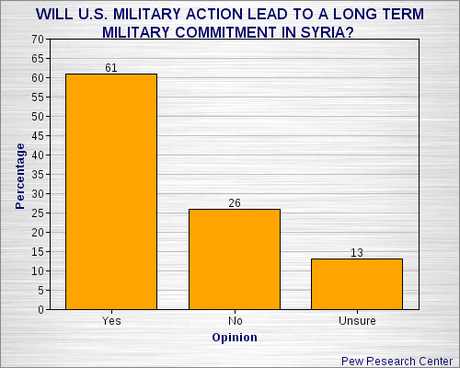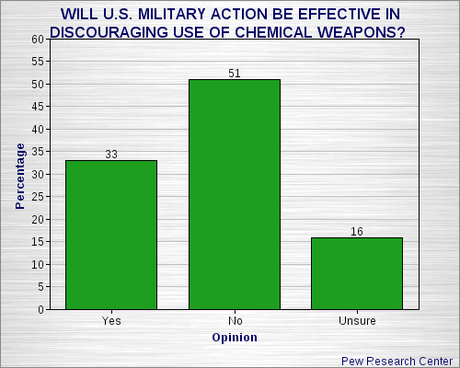


 It looks like the American people are not going to be led as easily into another war (even if the government won't call it that) as they have been in the past. Several polls in the last few days have shown that the president does not have majority support for his proposed strikes against Syria. In fact, every poll has shown that there is more opposition to the strikes than support for them.
It looks like the American people are not going to be led as easily into another war (even if the government won't call it that) as they have been in the past. Several polls in the last few days have shown that the president does not have majority support for his proposed strikes against Syria. In fact, every poll has shown that there is more opposition to the strikes than support for them.Now a new poll from the respected Pew Research Center verifies this once again. This survey was done between August 29th and September 1st of 1,000 nationwide adults, and has a margin of error of 3.7 points. It shows that only 29% of the general public supports the military strikes, while 48% are opposed and 23% are unsure what to think -- and that there is more opposition to the strikes than support among men (46% opposed), women (49% opposed), Republicans (40% opposed), Independents (50% opposed), and Democrats (48% opposed).
The bottom three charts shown above make it clear why most people are opposed to (or unsure about) the strikes. About 74%think it will just create a backlash against the U.S. and its allies, 61% believe it will lead to another long term military commitment (like Afghanistan & Iraq), and 51% don't think it will be effective in discouraging the use of chemical weapons. In other words, the proposed military strikes are much more likely to have a bad result that to accomplish anything good. Personally, I think the people are right.
And President Obama is not having much better luck on the international stage. At the recent G20 meeting (a meeting of the world's most powerful economies), President Obama was able to get 11 nations to sign on to a declaration condemning the use of chemical weapons in Syria and accusing the Syrian government of doing that. However, that declaration said nothing about any military strikes against Syria. And Europe's most powerful nation, Germany, wouldn't even agree to that rather weak declaration.
The U.S. still has only three other countries that have said they will help with those military strikes -- Saudi Arabia, Turkey, and France -- and now France is starting to backpedal a bit. The French now say they will participate only after three conditions have been met:
1. only if they targeted Syrian military installations in order to avoid civilian casualties.
2. only once UN inspectors had been given time to report back.
3. and should the UN Security Council fail to give authorisation, then so long as a broad international coalition was gathered.
That sounds like the French are having some serious second thoughts about their quick approval of military action. This national and international opposition gives me a little hope, but just a little, that perhaps this new road to war can be averted.

